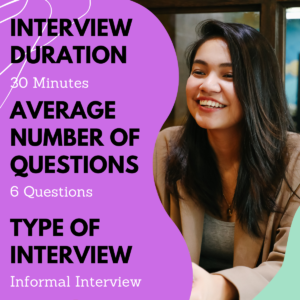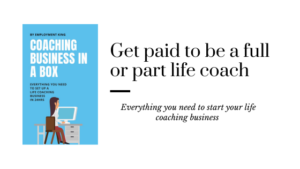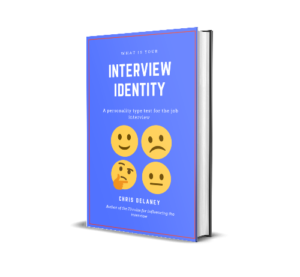Interview Questions and Answers Kitchen Assistant Interview
Kitchen assistants earn, on average, £15000-£1800 a year.
The industry is vast with employers, large and small, recruiting for skilled staff. Job roles are often competitive with a mixture of students, job seekers looking for part-time work and wanna be chefs (who don’t want to take a higher educational pathway) applying for the advertised roles.
How competitive is a kitchen assistant job interview?

Interview Specfics

In the main, kitchen assistants prepare food, support and work closely with chefs, ensuring the chef and his team, have everything they need and ensure the hygiene of the kitchen. With that in mind the interview questions will be based on these duties.

10 Interview Questions and Answers for A Kitchen Assistant
Kitchen Assistant Job Interview Question – Can you tell me a little bit about yourself?
To answer the opening job interview question, applicants are required to explain their kitchen assistant experience and state any catering or hygiene-related qualifications.
Start with a summary opening line: “I have over 10 years’ experience in catering” before giving more details “for the last 2 years I have worked at….” Keep this answer about your kitchen-related employment history and your work ethic, not your hobbies and interest.
Kitchen Assistant Job Interview Question – Why do you want to work as a Kitchen Assistant?
The hidden meaning behind this open job interveiw question is employee retention. Restaurants spend a large part of their profits on on-going recruitment. By hiring employees who want a catering career the hired applicant is likely to stay with the organisation.
Show your passion for wanting to work as a kitchen assistant; how you enjoy cooking, mixing ingredients and seeing customers eat your dishes.
Explain how you are excited to be working in the catering sector. If an employer believes this is a job stepping stone for you, they will presume that you will leave once you find a more suitable position and not offer you the kitchen assistant position.
But if the interviewer sees an applicant’s passion and desire, they are more likely to hire them.
Kitchen Assistant Job Interview – What do you think are the main duties of a Kitchen Assistant?
During a kitchen assistant job interview applicants will undrtake an infromal job interview or will be asked a number of competency-based job interview questions.
Employers will ask the interviewee what duties they are required to perform to test the applicant’s knowledge of a working kitchen. If an applicant can talk about food preparation, food hygiene, and general kitchen duties, the employer will score the applicant high.
To answer this question, list a few duties and make them relevant to past roles “you have to A, B and C in my last role I (give example) …”

Kitchen Assistant Job Interview Question – What experience and qualifications do you have?
For a kitchen assistant position, applicants aren’t required to have a degree-level qualification, as catering employers are more focused on a candidate’s skill set.
Saying that, applicants with a catering related qualification can be seen as more favorable.
Open with a confident line “I’m a qualified and highly experienced kitchen assistant…” and follow this with more detail “I have a food hygiene certificate as well as a Btec Level 3 in catering….”
In the main though, applicants need to state their kitchen experience. Explain if you can prep salads, make sources, trim and peel vegetables and give examples of complying with food hygiene regulations. Using real-life examples works best here.
Kitchen Assistant Job Interview Question – Do you prefer working in a team or alone?
The kitchen assistant role is a team-based position.
The employer is looking for someone who will fit in with the current team. You need to highlight how you are a team player and what you would bring to the team.
In the main, kitchen assistants are required to support other kitchen assistants if demand requires it. As well as working collaboratively, like a well-oiled machine.
Give a work-related example of being part of a team.
Kitchen Assistant Job Interview Question – Describe what you think a daily routine would be like, working in a kitchen?
Often in the kitchen, employees will follow a routine; unloading, prepping food, clearing away, opening up, cooking and serving.
This question is to check your knowledge base of a routine in a kitchen. An experienced kitchen assistant will answer this question confidently, explaining step-by-step what duties they would perform.
Answer this question in a time-line; “when I arrive in the kitchen, my first task is to wipe down the surfaces, before collecting the vegetable for preparation…..”
Kitchen Assistant Job Interview Question – If you prepared a meal and the customer didn’t like it, what actions would you take to resolve the issue?
Situational interview questions, like this one, are designed to check what you would do or have done previously.
When answering this question give 3 steps “If a customer didn’t like a meal that had been prepared for them I would first reassure the customer that we would give them a new dish free of charge, as this increases customer loyalty. Next, I would explain to the chef what the customer said they didn’t like about the meal before checking that the ingredients or sources hadn’t turned sour.”
 Kitchen Assistant Job Interview Question – What is your understanding of kitchen hygiene?
Kitchen Assistant Job Interview Question – What is your understanding of kitchen hygiene?
Food Hygiene is key in a kitchen.
Give a detailed answer here of your knowledge and the reason why you use certain chemicals, storing processes, hygiene processes.
To answer the interview question state the process you followed in a previous kitchen, as all kitchens adopt a similar routine when it comes to high hygiene standards.
Kitchen Assistant Job Interview Question -Do you have any questions for me?
Good questions to ask interviewers at the end of the job interview include questions on the company growth or expansion, questions on personal development and training and questions on company values, staff retention and company achievements.











